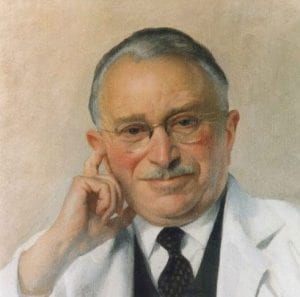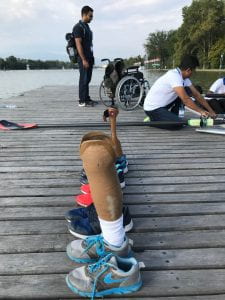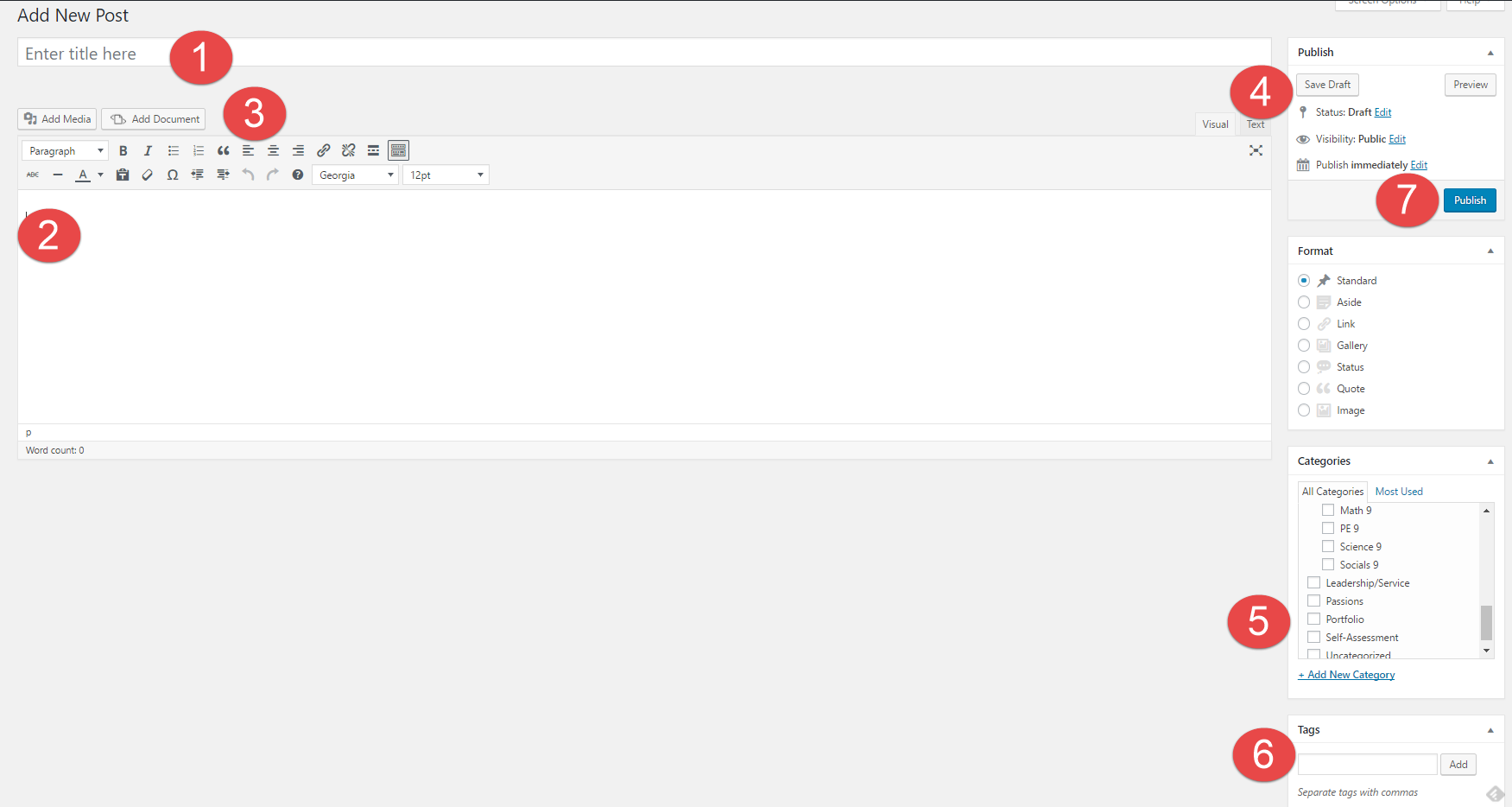Sir Ludwig Guttmann

“It occurred to me that it would have been a serious omission not to have included sport in the rehabilitation of handicapped people. That was probably one of the best thoughts I have ever had as a medical man.”
Personal Connections
I chose to research Sir Ludwig Guttmann for my first Eminent Person Project. What drew me to Sir Ludwig Guttmann is the strong connection I have to Para-rowing. I have met and been inspired by several Para-rowers. If the Paralympics didn’t exist, then there wouldn’t be a place for para-athletes to compete at the same level as the Olympic Games. If not for Sir Ludwig’s work, there wouldn’t be the Paralympic sports that has changed the way we look at people with disabilities.

Sir Guttman came to England just before the start of the second World War with little knowledge of the English language. It was difficult for him to translate and share his knowledge with his peers and superiors. I could relate to this in a way; I have also had challenges in sharing my knowledge because I struggle to take what I am thinking about and what I understand and put it on paper or in writing.
I also share with him the view that sport is very important and helps to bring people together. I believe that there should be more opportunities for everyone to participate in sport, especially those with disabilities – whether mental or physical disabilities.
A quality that Sir Ludwig and I share is that we have good attention to detail. He would check in on all his patients during the night to make sure that they were rolled to keep them safe from deadly pressure sores. When I referee soccer, I make sure that all the players have shin pads on, their socks are covering their shin pads, and that they don’t have metal studs on their cleats.
What has been missing for me in other classes is having a team to work with, people who I can connect with and understand that there are different ways of learning and solving a problem. Dr. Guttman was alone in his view at first and then found – or maybe better said built – a community of like-minded people to accomplish goals together.
One thing that is different and I have to work to understand about Dr. Guttman is his Jewish faith, his experience in Nazi Germany and how he always felt like a refugee in England. At the end of his life, he was quoted as saying that he never stopped feeling like a refugee and never truly felt English; British yes, but never totally accepted in England. I’ve been lucky to grow up in Canada and never experience anything like that.
Eminence
He made new principles that changed how patients were treated and the quality of care that they received; in turn, their life expectancy improved, and he used the power of sport to improve their mental and physical well-being. So, Dr. Guttman founded the Stoke-Mandeville Games. After injury Guttmann focused an individual’s mind on what they can do rather than regretting what they can no longer do. Through sport Guttmann gave that person back the will to live a full life with pride and self-respect.
I think that he will always be remembered because of the Paralympics, even though most people, (including me until I started the Eminent Person Project), don’t know who he is and what he did. But we all know about the Paralympics and that means that Sir Ludwig Guttmann’s legacy will continue to positively impact our world.
Some of the challenges that Sir Ludwig experienced during his rise to eminence include: having to escape from the Nazis and start a new life for his family in England; taking care of all patients, regardless of religion or nationality because he saw the person first; he wasn’t supposed to be because he was Jewish and German, so he was only supposed to treat Jewish patients.

Sir Ludwig Guttmann is worth researching because I enjoy watching the Olympics and the Paralympics, but I didn’t know who created the Paralympics. I now see how important it is for people with disabilities to be able to live side by side with able-bodied people and do anything an able-bodied person could do.
I chose Sir Ludwig Guttmann because I have seen firsthand what athletes with a disability can do and how exciting it is to watch them compete. He was the first person to help people with disabilities participate in sport as a means to rejoin society after devasting injuries. His small start with the Stoke-Mandeville Games has become an international movement, and now the Paralympic Summer and Winter Games are held every four years.
Sources:
https://www.thehistorypress.co.uk/articles/dr-guttmann-and-the-paralympic-movement/
https://www.paris2024.org/en/the-history-of-the-paralympic-games/
https://www.paralympicheritage.org.uk/professor-sir-ludwig-guttmann
Some good resources:
About the history of the Paralympics and Sir Ludwig Guttmann’s life and work.
Another good resource about Para-athletes is the Netflix Movie “Rising Phoenix” which is all about Para-athletes and their trip to the Paralympics. It would be good to watch as the Beijing Olympic and Paralympic games are coming up soon.
